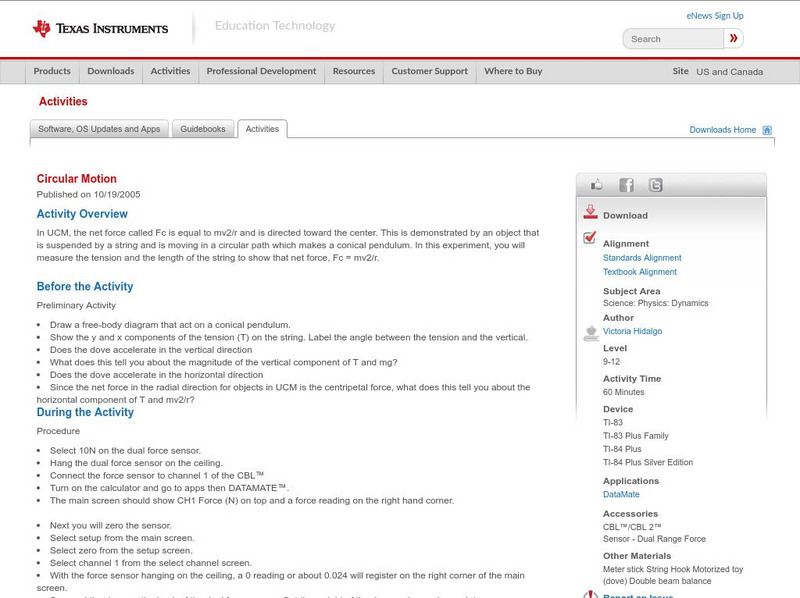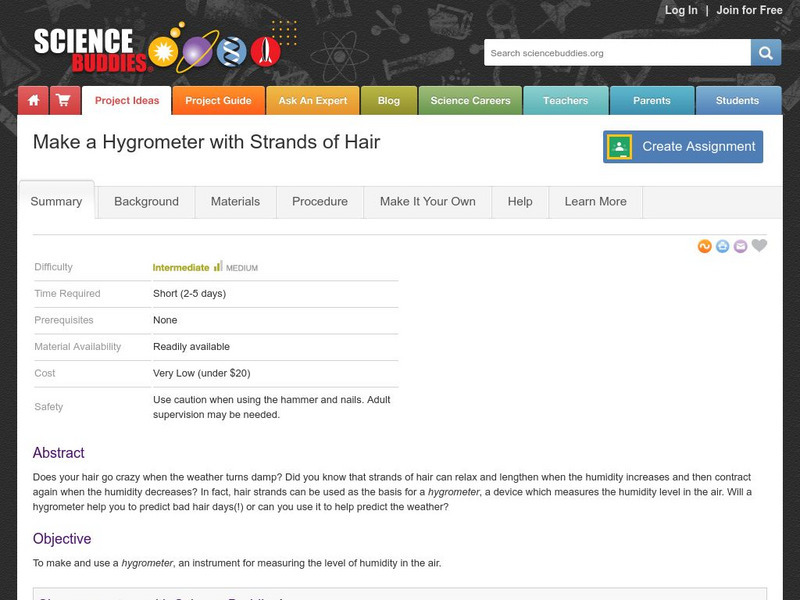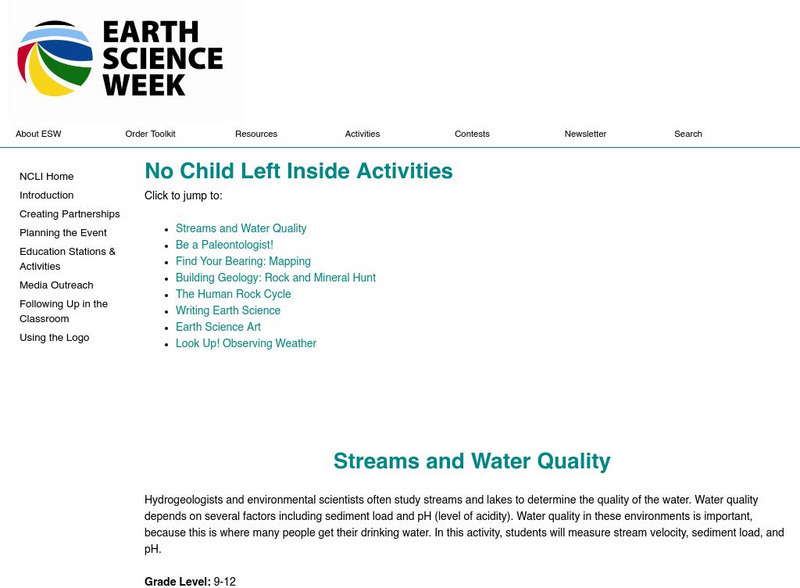National Geographic
National Geographic: Measuring Weather With Tools
Work with students to identify and understand the tools used to measure weather and how they're used.
Texas Instruments
Texas Instruments: Summarizing Distributions of Univariate Data
Students understand statistical concepts like center of data and the amount of data variation from the center. They calculate the measures of the center of a distribution and the measures of spread for the data collected as a list....
Texas Instruments
Texas Instruments: Circular Motion
In UCM, the net force called Fc is equal to mv2/r and is directed toward the center. This is demonstrated by an object that is suspended by a string and is moving in a circular path which makes a conical pendulum. In this experiment, you...
Texas Instruments
Texas Instruments: Friction
Students study how the nature of two materials in contact, and the smoothness of their surfaces affect the magnitude of the sliding force of friction. They use a force sensor to measure frictional force for different surfaces.
Center for Innovation in Engineering and Science Education, Stevens Institute of Technology
Ciese Real Time Data Projects:collecting Weather Data and Keeping a Weather Log
Over a period of two weeks students will use their class-made instruments to measure and record weather data. Students will also compare their data to online weather data. The final activity involves analyzing the collected data to look...
NASA
Nasa: Climate Kids: Rainsticks and Folklore
From superstitions to satellites, find out how weather instruments have helped people predict drought conditions through time.
CK-12 Foundation
Ck 12: Earth Science: Collecting Weather Data
[Free Registration/Login may be required to access all resource tools.] Describes the various instruments that scientists use to measure weather conditions, including advanced tools like satellites and radar.
Science Struck
Science Struck: Barometer Units
Explains the different measurement units that are used in barometers and provides conversion tables.
Science Buddies
Science Buddies: Make a Hygrometer With Strands of Hair
Does your hair go crazy when the weather turns damp? Did you know that strands of hair can relax and lengthen when the humidity increases and then contract again when the humidity decreases? In fact, hair strands can be used as the basis...
Science Buddies
Science Buddies: How Does a Wind Meter Work?
On a windy day it is hard to keep your hat on. The power of the wind can even be strong enough to power large wind turbines to make electricity. In this experiment, find out how you can make your own instrument to measure the speed and...
TeachEngineering
Teach Engineering: Build an Anemometer
Students create their own anemometers which are instruments for measuring wind speed. They see how an anemometer measures wind speed by taking measurements at various school locations. They also learn about different types of...
Dartmouth College
Dartmouth College: Chem Lab: Scanning Spectrometer
The scanning spectrometer measures absorbance vs. wavelength for liquid samples. Directions on how to use this instrument are provided here.
Science Struck
Science Struck: Hydrostatic Pressure vs. Osmotic Pressure
Defines and explains what osmotic and hydrostatic pressure are, how to calculate them, their applications, and the instruments used to measure them.
American Geosciences Institute
American Geosciences Institute: Earth Science Week: Look Up! Observing Weather
To get a better idea of how meteorologists make weather predictions, students will begin their own weather journals and make rain gauges.













